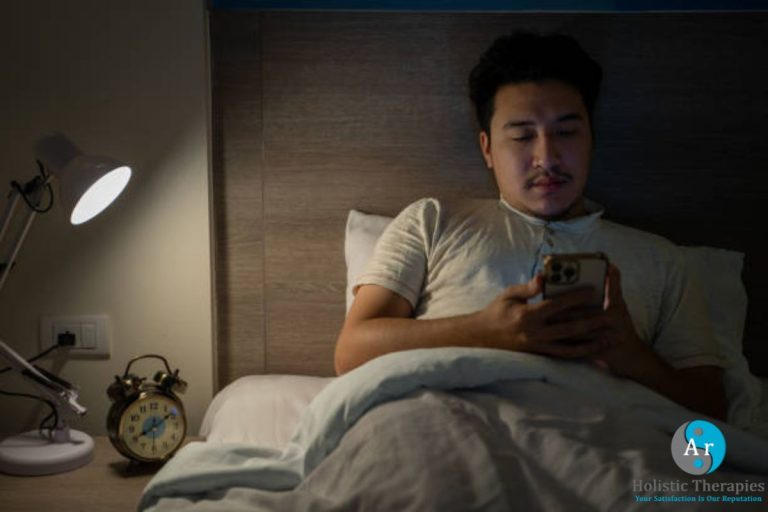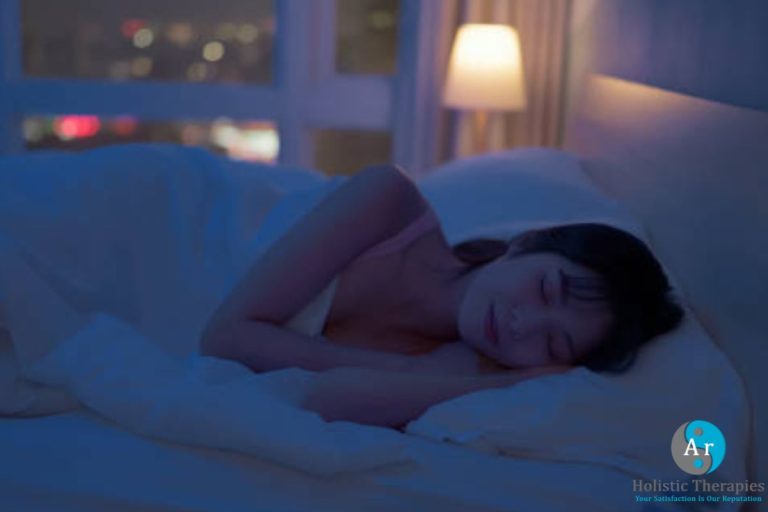Insomnia is more than just a fleeting issue with sleep; it’s a chronic condition that affects many aspects of daily life. Characterised by difficulty falling asleep, staying asleep, or waking up too early, insomnia can lead to fatigue, mood swings, and a decline in overall well-being. There are many modern techniques and therapies that can help people manage insomnia. These solutions give hope to those who are having trouble getting a good night’s sleep.
Understanding Insomnia
Understanding the causes of insomnia is crucial for effective management. Insomnia can be triggered by a variety of factors, including:
Stress and Anxiety: Stressful situations and ongoing anxiety can make it hard to sleep well. When we feel stressed, our bodies produce more cortisol, which can keep us from relaxing and falling asleep easily. Finding ways to manage stress can help improve our sleep quality and help us feel more rested.
Unhealthy Sleep Habits: Irregular sleep schedules, too much screen time before bed, and an uncomfortable sleep space can all play a role.
Caffeine and Alcohol: For a better night’s sleep, consider cutting back on caffeine and alcohol in the evening, as they can interfere with your body’s ability to relax. This simple change can make a big difference.
Medical Conditions: Chronic pain, restless legs syndrome, and conditions like sleep apnoea can disrupt sleep. Medications for these conditions might also have side effects that interfere with sleep quality.
Psychological Factors: Depression and other mental health issues can lead to insomnia. The persistent negative thought patterns associated with these conditions often make it difficult to relax and fall asleep.

Relaxation Techniques Before Bed
Incorporating relaxation techniques into your nightly routine can significantly improve sleep quality. Here are some practical tips:
Progressive Muscle Relaxation
This technique involves tensing and then slowly relaxing each muscle group in the body. By focusing on the contrast between tension and relaxation, you can help your body release stress and prepare for sleep.
How to practise:
- Find a quiet, comfortable position.
- Start with your toes and work your way up to your head, tensing each muscle group for 5–10 seconds before relaxing.
- Breathe deeply and focus on the sensation of relaxation.
Deep Breathing Exercises
Deep breathing helps calm the nervous system and reduce stress. Practicing deep breathing before bed can help slow your heart rate and prepare your body for sleep.
How to practise:
- Sit or lie down in a comfortable position.
- Inhale deeply through your nose for a count of four, hold for a count of four, and exhale slowly through your mouth for a count of six.
- Repeat for several minutes until you feel more relaxed.
Gentle Yoga or Stretching
Engaging in gentle yoga or stretching before bed can help relax your muscles and ease tension. Focus on poses that promote relaxation, such as Child’s Pose or Legs Up the Wall.
How to practise:
- Set aside 10–15 minutes for a gentle yoga session.
- Choose poses that encourage relaxation and stretching.
- Incorporate deep breathing into your routine.
Aromatherapy for Sleep Enhancement
Aromatherapy is a natural method that can enhance sleep by creating a calming environment. Essential oils have been used for centuries to promote relaxation and improve sleep quality.
Essential Oils for Sleep
- Lavender: Known for its calming properties, lavender oil can help reduce anxiety and promote relaxation. Studies have shown that lavender can improve sleep quality and duration.
- Chamomile: Chamomile has mild sedative effects that can help calm the mind and body, making it easier to fall asleep.
- Bergamot: This citrus oil can help reduce stress and improve your mood, which can indirectly contribute to better sleep.
How to Use Essential Oils
- Diffuser: Add a few drops of your chosen essential oil to a diffuser and let it disperse throughout your bedroom before bed.
- Bath: Add a few drops of essential oil to a warm bath to create a relaxing pre-sleep ritual.
- Pillow Spray: Mix essential oil with water in a spray bottle and lightly mist your pillow and bedding.



Hypnotherapy for Better Sleep
Hypnotherapy is an innovative approach to treating insomnia by retraining the mind to achieve better sleep patterns. Through guided relaxation and focused attention, hypnotherapy can address the psychological aspects of insomnia.
Benefits of Hypnotherapy
- Reduces Stress: Hypnotherapy helps calm the mind and reduce the stress that can contribute to insomnia.
- Enhances Sleep Quality: By addressing underlying psychological issues, hypnotherapy can improve overall sleep quality and duration.
- Reprograms Sleep Patterns: Hypnotherapy can help reprogramme the mind to develop healthier sleep habits and routines.
How Hypnotherapy Works:
- Consultation: During a hypnotherapy session, a trained therapist will discuss your sleep patterns and concerns.
- Induction: The therapist will guide you into a relaxed state through verbal suggestions and imagery.
- Suggestion: The therapist will provide suggestions to address sleep issues and reinforce positive sleep habits.
A recent meta-analysis published in BMC Complementary Medicine and Therapies (2022), found that hypnotherapy led to a 25% reduction in sleep onset latency and a 20% improvement in overall sleep duration. These findings underscore hypnotherapy’s effectiveness as a valuable tool in the holistic treatment of insomnia.
Ar Holistic Therapies’ Solution for Insomnia
At Ar Holistic Therapies, we understand how challenging insomnia can be. That’s why we offer customised solutions that blend hypnotherapy and aromatherapy. Our goal is to help you achieve better sleep in a supportive and caring environment. Our approach is designed to promote restful sleep and enhance overall well-being.
How Our Services Can Help:
- Personalised Hypnotherapy: Our hypnotherapy sessions are customised to address your specific sleep issues, helping to reprogramme your mind for better sleep.
- Aromatherapy Treatments: We provide guidance on using essential oils to create a calming sleep environment and improve sleep quality.
- Holistic Approach: We integrate various techniques and therapies to offer a comprehensive solution to insomnia, considering your unique needs and lifestyle.
Conclusion
Insomnia can be tough to handle, but there are many great strategies that can help you get the sleep you deserve. With a little effort, you can find the right approach to enjoy a peaceful night’s rest. From relaxation techniques and aromatherapy to hypnotherapy, there are numerous approaches to explore. By integrating these methods into your nightly routine, you can improve your sleep quality and overall well-being.
If you’re struggling with insomnia and seeking a holistic approach to better sleep, explore the services offered by Ar Holistic Therapies. Our hypnotherapy and aromatherapy treatments are designed to address your unique needs and promote restful sleep. Share your experiences with us and take the first step toward a more restful night.
